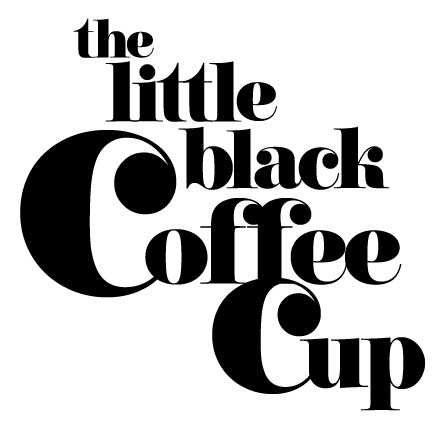Is the Dairy Industry Killing Specialty Coffee?

In relationship to coffee, milk has historically found itself teetering precariously between being both a necessity and an afterthought.
At the 2014 SCAA Symposium in Seattle, Sarah Dooley hosted a groundbreaking session entirely focused on dairy. As part of her presentation, Dooley took a trip to cow origin to explore where milk comes from. Her talk was followed up by an article published earlier this year in Fresh Cup Magazine highlighting the inconsistencies around our treatment of milk in the coffee industry: "It’s a little ironic that we sit through coffee training, hover over cupping tables, listen to the importance of certification talks, and yet rarely do we delve into the standards, grading, pricing structures, regulations, supply chains, and processing practices of milk."
Earlier this year—and two years after Dooley’s pivotal presentation—I sat in darkness amongst an audience of hundreds of industry peers at the 2016 Re;Co Symposium in Atlanta. As speaker after speaker went on stage to address the climate crisis facing our beloved Coffea Arabica, a lightbulb went off—Could it be that dairy production is killing the specialty coffee industry? Could it be that this creamy liquid we rely on to bolster most of the drinks in our cafes is actually helping to push coffee toward its projected 2080 extinction? Let me explain.
At present, coffee farmers are facing serious challenges directly related to climate change. Coffee, which has been referred to as a Goldilocks crop, doesn't survive if it's too hot, too cold, too wet or too dry. Land once fit for growing coffee can be rendered unsuitable after only half a degree of temperature change—and, research shows things are heating up.
A warmer and more unpredictable climate invariably makes Arabica coffee trees less productive. Since the demand for specialty coffee is growing, and global temperatures are increasing, it behooves us to consider all the ways we are contributing to global warming along coffee's supply chain—for the sake of our morning joe, and our livelihoods.
As roasters are taking the time to bag their coffees in biodegradable packages, cafes are supplying customers with compostable to-go cups, and millennials are eager to put their money where the sustainability is, isn’t it fair to take a moment and shine a light on coffee’s close-knit relationship with milk? And, subsequently the impact the dairy industry is having on our environment? After all, we consume a heck of a latte of dairy milk in our cafes: more in volume than coffee beans, and second only to water.
With roughly 270 million dairy cows on the planet, and each of those cows releasing anywhere from 26 to 53 gallons of methane per day, dairy is a significant contributor to world wide green house gas emissions. Not only do cows emit methane—which is thirty times more potent than carbon dioxide as a heat trapping gas—but the World Wildlife Fund states, "poor handling of manure and fertilizers can degrade local water resources. And unsustainable dairy farming and feed production can lead to the loss of ecologically important areas, such as prairies, wetlands, and forests.”
The 2014 documentary Cowspiracy goes as far to say "Animal Agriculture is the most destructive industry facing the planet today. 51% of Global greenhouse gas emissions are due to livestock and their by-products. In comparison, transport (road, rail, air and marine) only accounts for 13% of global emissions."
So, what exactly are specialty coffees' demands on the dairy industry? How many of those 270 million dairy cows are required to support our coffee bars and latte habits? Is the relationship between coffee and milk a sustainable one?
Based on findings from the Climate Institute (which were featured on Sprudge earlier this week), “Without strong action to reduce emissions, climate change is projected to cut the global area suitable for coffee production by as much as 50 per cent by 2050.” If it turns out that dairy milk is one of the greatest producers of emissions in relationship to coffee, what does strong action look like to the coffee industry? What kind of changes are we willing to make?
Does this mean milk-saturated Thursday night throwdowns are simultaneously increasing interest in specialty coffee, while helping to destroy it at the farm level? Do plant based milks have less of an ecological impact? Whatever the case, will we continue to pretend the business of coffee is not—first and foremost—the business of selling milk? And, can we bear that responsibility?
I am not a scientist, and I don't pretend to have a definitive answer to the question posed by the title of this article. Of course, pointing the finger at the dairy industry alone is not entirely fair, since there are many intricate systems in our modern lifestyle and along the coffee supply chain that contribute to global warming. However, as coffee’s co-dependent relationship with dairy is notoriously overlooked, it’s prudent to start the conversation about the sustainability of the milk we feature in our cafes somewhere—for the sake of understanding the dairy industry’s impact on specialty coffee as a whole. And, for the sake of questioning everything.
While headlines continue to roll in about coffee growing regions being devastated by climate change, perhaps not adding the usual dollop of cream to your coffee is a sustainable—and forward thinking—choice. x
"What we are really seeing as a company as we look 10, 20, 30 years down the road—if conditions continue as they are—is a potentially significant risk to our supply chain… If we sit by and wait until the impacts of climate change are so severe that is impacting our supply chain then that puts us at a greater risk."
- Jim Hanna, Director, Environmental Affairs, Starbucks

